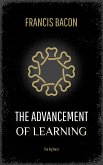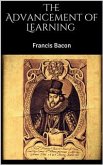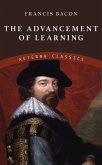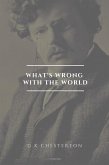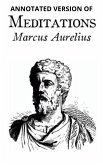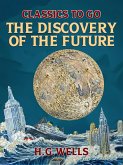Francis Bacon was a 16th and 17th-century English philosopher, best known for introducing the empirical (scientific) method during the Scientific Revolution. Bacon first outlined the empirical method in his text, “The Advancement of Learning,” which he wrote in 1605. The work is addressed to King James I and divided into two parts. Each part is referred to as a book, with its own distinct sections.
Before Bacon, 'learning' largely meant memorizing the classics, especially Aristotle, and acceding to every dictat of established religion. In “The Advancement of Learning,” he argued that the only knowledge of importance was that which could be discovered by observation- 'empirical' knowledge rooted in the natural world. He championed the idea of state funding for experimental science and the creation of an encyclopedia.
Bacon's great claim to fame is not that he entered Trinity College, Cambridge, at the age of 12, not that he was Lord Chancellor of England under James I, nor even that he has been reputed the real writer of Shakespeare's plays, but that he was a philosopher of the first rank and the effective founder of the modern, experimental, scientific, approach to understanding.
Hinweis: Dieser Artikel kann nur an eine deutsche Lieferadresse ausgeliefert werden.
Before Bacon, 'learning' largely meant memorizing the classics, especially Aristotle, and acceding to every dictat of established religion. In “The Advancement of Learning,” he argued that the only knowledge of importance was that which could be discovered by observation- 'empirical' knowledge rooted in the natural world. He championed the idea of state funding for experimental science and the creation of an encyclopedia.
Bacon's great claim to fame is not that he entered Trinity College, Cambridge, at the age of 12, not that he was Lord Chancellor of England under James I, nor even that he has been reputed the real writer of Shakespeare's plays, but that he was a philosopher of the first rank and the effective founder of the modern, experimental, scientific, approach to understanding.
Hinweis: Dieser Artikel kann nur an eine deutsche Lieferadresse ausgeliefert werden.



